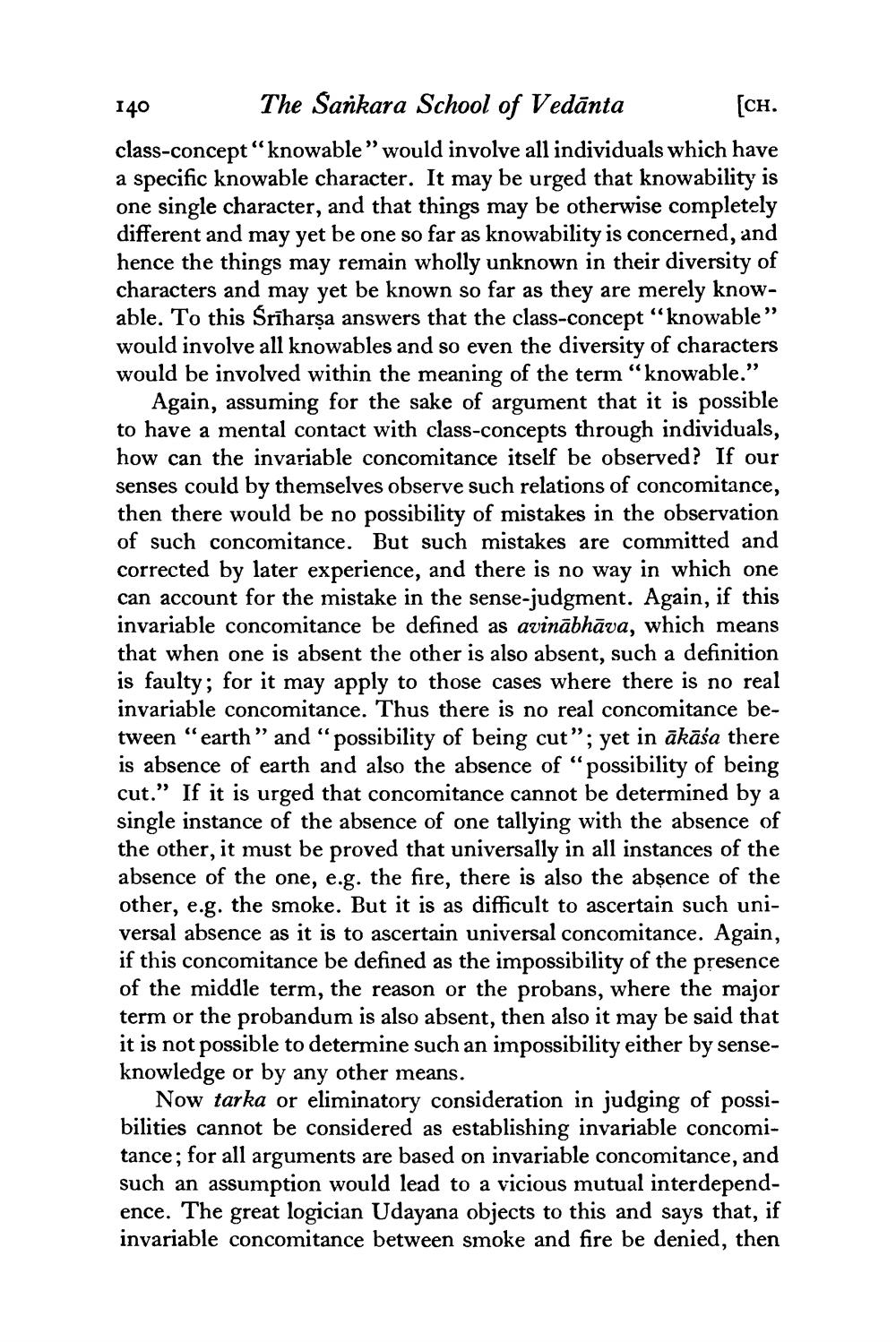________________
140 The Sankara School of Vedānta
[CH. class-concept“knowable" would involve all individuals which have a specific knowable character. It may be urged that knowability is one single character, and that things may be otherwise completely different and may yet be one so far as knowability is concerned, and hence the things may remain wholly unknown in their diversity of characters and may yet be known so far as they are merely knowable. To this Śrīharșa answers that the class-concept “knowable" would involve all knowables and so even the diversity of characters would be involved within the meaning of the term “knowable.”
Again, assuming for the sake of argument that it is possible to have a mental contact with class-concepts through individuals, how can the invariable concomitance itself be observed? If our senses could by themselves observe such relations of concomitance then there would be no possibility of mistakes in the observation of such concomitance. But such mistakes are committed and corrected by later experience, and there is no way in which one can account for the mistake in the sense-judgment. Again, if this invariable concomitance be defined as avinābhāva, which means that when one is absent the other is also absent, such a definition is faulty; for it may apply to those cases where there is no real invariable concomitance. Thus there is no real concomitance between “earth” and “possibility of being cut”; yet in ākāśa there is absence of earth and also the absence of “possibility of being cut.” If it is urged that concomitance cannot be determined by a single instance of the absence of one tallying with the absence of the other, it must be proved that universally in all instances of the absence of the one, e.g. the fire, there is also the absence of the other, e.g. the smoke. But it is as difficult to ascertain such universal absence as it is to ascertain universal concomitance. Again, if this concomitance be defined as the impossibility of the presence of the middle term, the reason or the probans, where the major term or the probandum is also absent, then also it may be said that it is not possible to determine such an impossibility either by senseknowledge or by any other means.
Now tarka or eliminatory consideration in judging of possibilities cannot be considered as establishing invariable concomitance; for all arguments are based on invariable concomitance, and such an assumption would lead to a vicious mutual interdependence. The great logician Udayana objects to this and says that, if invariable concomitance between smoke and fire be denied, then




